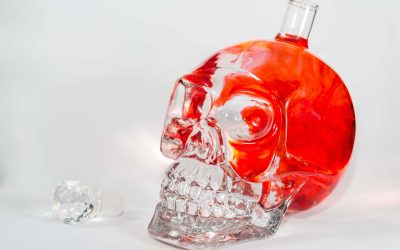4 September 2020
Alcohol Use Disorder and Depressive Disorders PMC
Federal data show that 1 in 10 people had an alcohol use disorder in the past year, over 4 in 10 alcohol users report binge drinking in the past month, and per capita alcohol consumption is higher than the decade prior. Treatment rates for alcohol use disorders are notably low, especially for the use of medication, a recommended AUD treatment component. Although Top 5 Advantages of Staying in a Sober Living House the opioid crisis has been declared a public health emergency by the U.S. Department of Health and Human Services since 2017, no similar declaration exists regarding alcohol deaths. However, HHS has set a priority goal of reducing emergency department visits for acute alcohol use, mental health conditions, suicide attempts, and drug overdoses by 10% by 2025.
Treatment for Alcohol Misuse
Daily or near-daily reported use of marijuana and alcohol have both increased in the past 30 years, but the increase has been much sharper among marijuana users. It was the first time the survey recorded more frequent users of cannabis than alcohol, the report added. In 2022, New Mexico’s death rate was the highest at 42.7 per 100,000 people, which was more than six times higher than Hawaii, the state with the lowest rate at 7.1 per 100,000 people (Figure 4).
Treatment of Co-Occurring AUD and Depressive Disorders

Drinking a lot may worsen these feelings, which may actually drive further drinking. Individuals with alcohol use disorder may drink too much alcohol, too often. Depression may even cause people to begin consuming large amounts of alcohol. Research suggests that light or moderate wine consumption may reduce the risk of dementia, but drinking an excessive amount of wine increases the chance of dementia and cognitive decline.
Finding Treatment For Alcohol And Depressants
Some researchers have suggested that the effects of psychotherapy may account for some of the pill placebo response observed in medication studies. Major depression and alcohol use disorder are also co-dependent in women, research suggests. Women with depression are also more likely to engage in binge drinking. Individuals with mental health conditions may be more likely to use alcohol as a treatment. Several studies suggest that military veterans are more likely to experience depression, post-traumatic stress disorder (PTSD), and misuse alcohol. If you’re battling depression, alcohol isn’t going to make you feel better.
- It wasn’t until 1993 that clinical research funded by the National Institutes of Health was required to include women as research subjects.
- Previous trauma is also a risk factor for alcohol misuse and depression.
- While it may feel good to drink, alcohol changes the chemicals in your brain, impacting your thoughts and behaviors.
- People may develop an addiction to alcohol after using it to cope with stress or traumatic life events.
- Drinking persistently and excessively can increase your risk of developing a major depressive disorder.
Does Depression Drive You to Drink Alcohol?
His theories have changed the field, stimulated additional research, and led to new understanding and treatments for opioid use disorders, cocaine use disorders, overeating, smoking, and depression. During this waiting period, patients are at high risk of returning to opioid use or overdosing or discontinuing treatment, a significant barrier to the implementation of long-acting naltrexone. This study makes it more likely long-acting opioid antagonists may be considered rather than opioid maintenance. The difference in waiting time may also make XR-naltrexone more viable than buprenorphine and methadone for some patients.
It can also aggravate symptoms of pre-existing depression and endanger your health and mental health. Long-term, heavy drinking — more than eight drinks per week for women and more than 15 per week for men — can negatively affect your mood and mental health and is linked to depression, anxiety, and sleep disorders. Of treatments to prevent relapse to AUD and reduce harm from alcohol, the most compelling data is for long-acting injectable naltrexone. Many studies have demonstrated the effectiveness of injectable naltrexone in reducing alcohol consumption and promoting recovery. In addition, oral naltrexone may be used to reduce harm from binge drinking. Her research on polysubstance use considers differences between women and men.

- Stimulants are defined as drugs that produce an abundance of dopamine and can have effects like euphoria, talkativeness, energy, difficulty sleeping and increased pulse and blood pressure.
- During swallowing, the esophagus contracts and relaxes tohelp food reach the stomach.
- The term drug is not always easy to define.In a medical context, a drug may be defined as any substance used inthe diagnosis, prevention, treatment, or cure of a disease.
- To fall back or revert to an earlier state; to regress after partial recovery.
- An enzyme found in the liver and stomach that helps break down alcohol into substances that can be excreted from the body.
Excess drinking and alcohol use disorder (AUD) is common, not easily diagnosed, and often undertreated, with less than 15% of individuals with a lifetime diagnosis receiving any treatment. While medication-assisted treatments (MATs) https://thecupertinodigest.com/top-5-advantages-of-staying-in-a-sober-living-house/ have been the major therapeutic approach for opioid use disorders, alcohol use disorders have gone mostly untreated. Yet alcohol misuse is believed to be responsible for more than 140,000 deaths annually in the United States.
However, significant gaps remain in our understanding of these two disorders, and these gaps present important opportunities for future research. If you or someone you know is struggling with an addiction to alcohol or another depressant, know that you are not alone — and that there are treatment options available. There are treatment facilities across the country that can provide you or your loved one care. However, as more alcohol is consumed, more depressant effects will develop.
Although medication and behavioral therapy have both shown promise, response rates have been somewhat modest. Efforts to enhance treatment outcomes would benefit from investigation into the characteristics of people who do not respond to existing treatments. A better understanding of the heterogeneity within this population will inform more personalized treatment approaches and might ultimately improve treatment response. Alcohol users and abusers, as well as alcoholics, cansuffer injuries related to the acute effects of alcohol.
No Comments currently posted.
Post a comment on this entry:
You must be logged in to post a comment on this entry.


